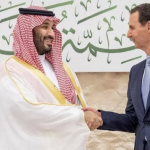You Might Want To Check This Out Too:
Government plays a pivotal role in shaping and governing modern societies, providing essential services, establishing laws and regulations, and safeguarding the well-being of its citizens. This article delves into the multifaceted role of government, exploring its structures, functions, and the impact it has on various aspects of society.
1. Government as a Service Provider
One of the primary roles of government is to provide essential services to its citizens. These services include education, healthcare, transportation, infrastructure development, public safety, and social welfare programs. Governments allocate resources and design policies to ensure the equitable distribution of these services, aiming to enhance the quality of life for all members of society.
2. Legislative and Regulatory Functions
Government plays a crucial role in enacting laws and regulations that govern society. Legislatures create and amend laws, providing a framework for social order and justice. Regulations are established to oversee various sectors such as finance, environment, labor, and consumer protection. Through legislation and regulation, government shapes the behavior of individuals, organizations, and industries to maintain a fair and orderly society.
3. Economic Stewardship
Governments play a crucial role in guiding and regulating economic activities. They formulate economic policies to promote growth, stability, and job creation. Governments manage fiscal and monetary policies, taxation, trade agreements, and economic regulations to foster a conducive environment for businesses and individuals to thrive. Additionally, governments intervene during economic crises to stabilize markets and protect vulnerable populations.
4. Social Welfare and Public Safety
Governments have a responsibility to protect and promote the welfare of their citizens. They develop social welfare programs, including unemployment benefits, social security, healthcare systems, and assistance for marginalized communities. Governments also establish law enforcement agencies, judicial systems, and emergency response services to maintain public safety and protect individuals from crime and external threats.
5. Diplomacy and International Relations
Government’s role extends beyond national borders, encompassing diplomacy and international relations. Governments engage in negotiations, treaties, and alliances to foster cooperation, resolve conflicts, and address global challenges such as climate change, human rights, and trade. They represent the interests of their citizens and work towards maintaining peace, stability, and prosperity in the international arena.
Conclusion: The role of government in modern society is diverse and essential. It encompasses service provision, legislative functions, economic stewardship, social welfare, public safety, and global diplomacy. Governments are entrusted with the task of promoting the well-being of their citizens, maintaining order, and advancing societal progress. Understanding and actively participating in the functioning of government is crucial for individuals and communities to shape policies and contribute to a prosperous and equitable society.
Here's A Video We Thought You Might Also Like:
Author Profile
Latest entries
 World2023.05.19Georgian anger as Russian flights land again in Tbilisi
World2023.05.19Georgian anger as Russian flights land again in Tbilisi Breaking News2023.05.19Assad Urges Arab Leaders to Seize ‘Historic Opportunity’ in Remaking the Middle East
Breaking News2023.05.19Assad Urges Arab Leaders to Seize ‘Historic Opportunity’ in Remaking the Middle East Breaking News2023.05.19Volodymyr Zelensky Accuses Arab Leaders of Neglecting Russia’s Invasion Ahead of G7 Summit
Breaking News2023.05.19Volodymyr Zelensky Accuses Arab Leaders of Neglecting Russia’s Invasion Ahead of G7 Summit Breaking News2023.05.19President Biden Announces US Support for Joint Training Initiative to Strengthen Ukrainian Air Force
Breaking News2023.05.19President Biden Announces US Support for Joint Training Initiative to Strengthen Ukrainian Air Force






